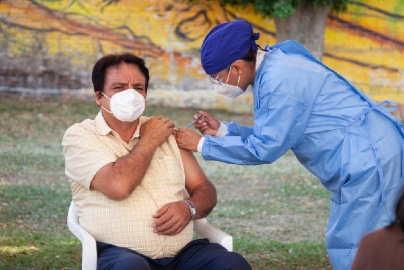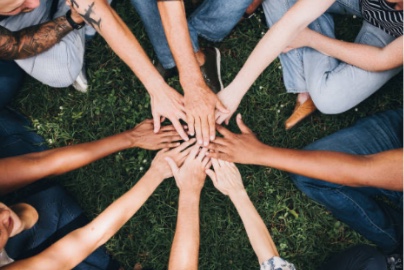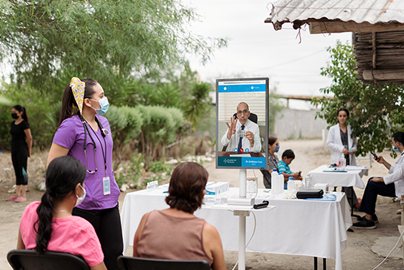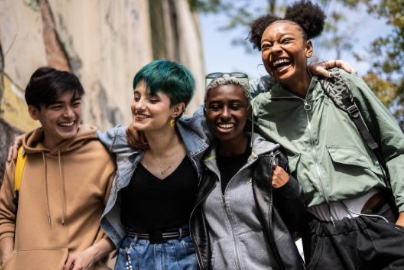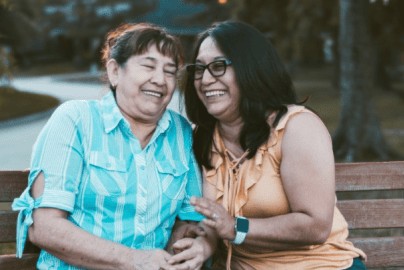Programs and Projects
-
Community Engagement
Learn about Community Engagementarrow_forwardThe Community Engagement program is a well-established resource linking investigators and community partners to implement the mission of building capacity and infrastructure for clinical and translational research.
-
Culturally and Linguistically Appropriate Services
Learn about CLASarrow_forwardThe UC Davis Center for Reducing Health Disparities “Providing Quality Health and Health Care with CLAS” (Culturally and Linguistically Appropriate Services) curriculum is an innovative program designed to help leaders in the health care industry develop comprehensive strategies to meet accreditation requirements and improve their quality of culturally and linguistically appropriate services.
-
Spanish Mini Medical School
Learn about the Spanish Mini Medical Schoolarrow_forwardThe Spanish Mini-Medical School is an ongoing educational program for the Spanish-speaking community. The most recent 13th Annual Mini Escuela de Medicina Virtual en Español was presented by the UC Davis Health Alzheimer's Disease Research Center and Center for Reducing Health Disparities.
-
Digital Health Equity
Learn about the Digital Health Equity projectarrow_forwardThe Digital Health Equity Project (DHE) aims to address health disparities, especially in underrepresented minority and low-income populations, by providing preventive health screenings for high blood pressure and for depression. DHE will identify individuals who may benefit from remote patient monitoring for hypertension and/or from behavioral health services for depression and refer them to Federally Qualified Health Centers and other community-based resources.
-
PANDEMIC
Learn about PANDEMICarrow_forwardProgram to Alleviate National Disparities in Ethnic and Minority Immunizations in the Community (PANDEMIC) is a project dedicated to boosting COVID-19 adult vaccination rates among racial and ethnic minority communities, in particular, low-income Latino and immigrant families, where health care skepticism is common and vaccination rates are low.
-
Community Engagement Alliance (CEAL) STOP COVID-19 CA Alliance
Learn about CEALarrow_forwardIs a California-wide academic-community partnership using community-engaged approaches for addressing COVID-19 prevention, treatment, and testing in high-risk communities.
-
ACTIVATE
Learn about ACTIVATEarrow_forwardAccountability, Coordination, and Telehealth in the Valley to Achieve Transformation and Equity (ACTIVATE) is a demonstration project using digital health to improve the well-being of underserved and rural communities in partnership with community health centers.
-
California Reducing Disparities Project
Learn about the CRDP Projectarrow_forwardThe California Reducing Disparities Project (CRDP) is a statewide prevention and early intervention effort to reduce mental health disparities in underserved communities.
-
Together for Wellness | Juntos Por Nuestro Bienestar
Learn about Together for Wellnessarrow_forwardTogether for Wellness/Juntos Por Nuestro Bienestar is a collaborative group of partners from across the state representing mental health services, community-based organizations, academic institutions, and individual community members and leaders. Together for Wellness/Juntos seeks to create a repository of digital resources (like apps, websites, videos, and articles) that can support and improve people’s mental health and wellbeing.
-
ICCTM Learning Collaborative
Learn about the ICCTM Learning Collaborativearrow_forwardThe statewide Interdisciplinary Collaboration and Cultural Transformation Model (ICCTM) Learning Collaborative is a free, virtual, training series specifically geared for California County Behavioral Health Departments and Authorities. The ICCTM Learning Collaborative consist of 44 Distinct California Counties. The purpose of the ICCTM Learning Collaborative is to address health inequities in access and utilization of quality mental health services that are prevalent within many of our communities.
-
Community Health Worker Research Best Practices Training
Learn about the CHW Research Projectarrow_forwardCommunity Health Workers (CHWs) and Promotoras, embedded leaders within underserved communities, have an important role supporting community-engaged research and are increasingly being incorporated into research teams for their ability to reduce barriers in translation, particularly regarding research on health disparities. The Community Health Worker Research Best Practices Training focuses on providing culturally and linguistically sensitive training to help improve the translation of clinical research in underserved communities.
-
All of Us CTSA-PACER Community Network Project
Learn about the AoU Projectarrow_forwardThe All of Us Research Program, led by the NIH, seeks to accelerate health research by enrolling over one million diverse participants across the U.S. UC Davis Health, in collaboration with the CTSC Community Engagement Program. The All of Us data is made accessible to students, researchers, and healthcare teams, fostering better understanding and care for various health conditions.
Archived projects
- Licensed Physicians from Mexico Pilot Program (LPMPP), Assembly Bill 1045
- MOVE IT UP Project
- Trauma-Informed Care and Services for Immigrant Families: A Three-Part Symposium
- Solano County Innovations Project
- Covered California Project
- California Reducing Disparities Project Latino Strategic Planning Workgroup
- Exploring the Effects of Parental Deportation on U.S. Citizen Children
- Mental Health Services Act Oversight and Accountability Services Evaluation
- A Sentinel Network to Increase Community Participation in Research





